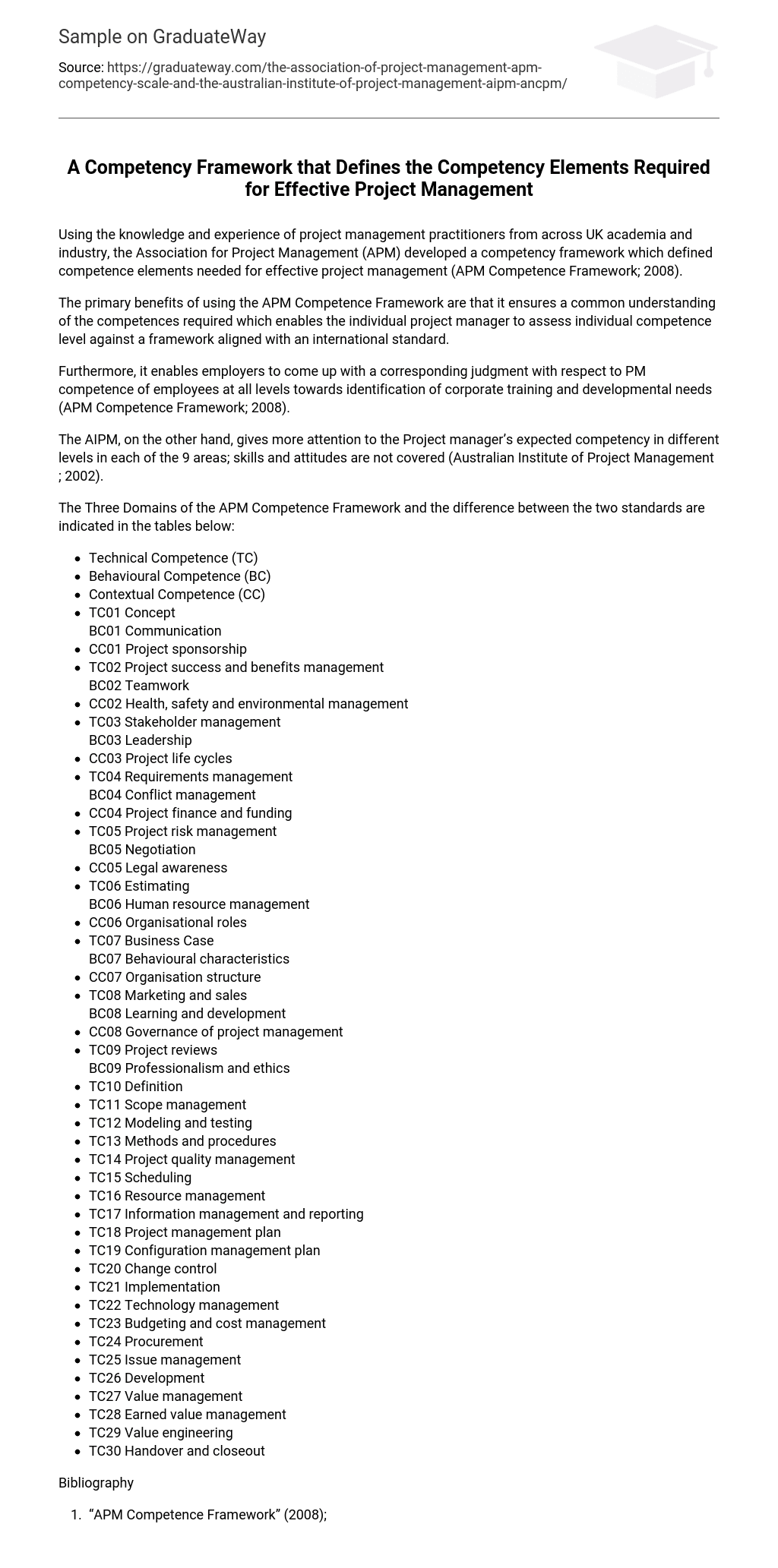Using the knowledge and experience of project management practitioners from across UK academia and industry, the Association for Project Management (APM) developed a competency framework which defined competence elements needed for effective project management (APM Competence Framework; 2008).
The primary benefits of using the APM Competence Framework are that it ensures a common understanding of the competences required which enables the individual project manager to assess individual competence level against a framework aligned with an international standard.
Furthermore, it enables employers to come up with a corresponding judgment with respect to PM competence of employees at all levels towards identification of corporate training and developmental needs (APM Competence Framework; 2008).
The AIPM, on the other hand, gives more attention to the Project manager’s expected competency in different levels in each of the 9 areas; skills and attitudes are not covered (Australian Institute of Project Management ; 2002).
The Three Domains of the APM Competence Framework and the difference between the two standards are indicated in the tables below:
- Technical Competence (TC)
- Behavioural Competence (BC)
- Contextual Competence (CC)
- TC01 Concept
BC01 Communication - CC01 Project sponsorship
- TC02 Project success and benefits management
BC02 Teamwork - CC02 Health, safety and environmental management
- TC03 Stakeholder management
BC03 Leadership - CC03 Project life cycles
- TC04 Requirements management
BC04 Conflict management - CC04 Project finance and funding
- TC05 Project risk management
BC05 Negotiation - CC05 Legal awareness
- TC06 Estimating
BC06 Human resource management - CC06 Organisational roles
- TC07 Business Case
BC07 Behavioural characteristics - CC07 Organisation structure
- TC08 Marketing and sales
BC08 Learning and development - CC08 Governance of project management
- TC09 Project reviews
BC09 Professionalism and ethics - TC10 Definition
- TC11 Scope management
- TC12 Modeling and testing
- TC13 Methods and procedures
- TC14 Project quality management
- TC15 Scheduling
- TC16 Resource management
- TC17 Information management and reporting
- TC18 Project management plan
- TC19 Configuration management plan
- TC20 Change control
- TC21 Implementation
- TC22 Technology management
- TC23 Budgeting and cost management
- TC24 Procurement
- TC25 Issue management
- TC26 Development
- TC27 Value management
- TC28 Earned value management
- TC29 Value engineering
- TC30 Handover and closeout
Bibliography
- “APM Competence Framework” (2008); Association of Project Management: Book
- “Australian Institute of Project Management” (2002); National Competency Standards for Project Management, retrieved from http://www.aipm.com.au/html/ncspm.cfm.
- “Australian Institute of Project Management” (AIPM) (2002) Registered Project Manager, retrieved from http://www.aipm.com.au/html/regpm.cfm.
- Hacket, Graham; “Association for Project Management: Competence Framework and CPD Scheme”.
- “Association for Project Management”; retrieved from http://www.apm.org.uk/Definitions





